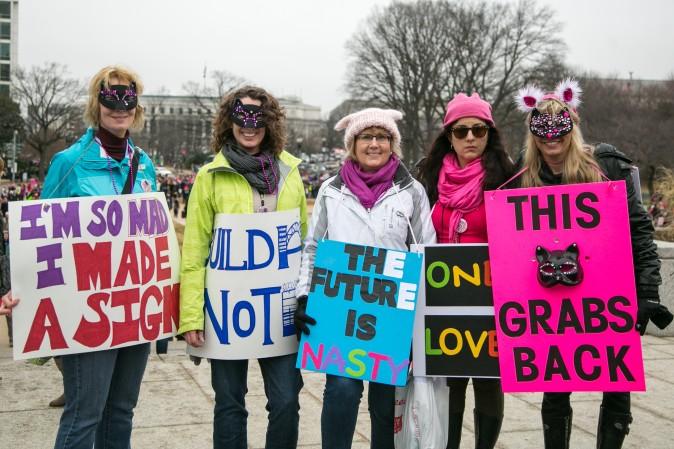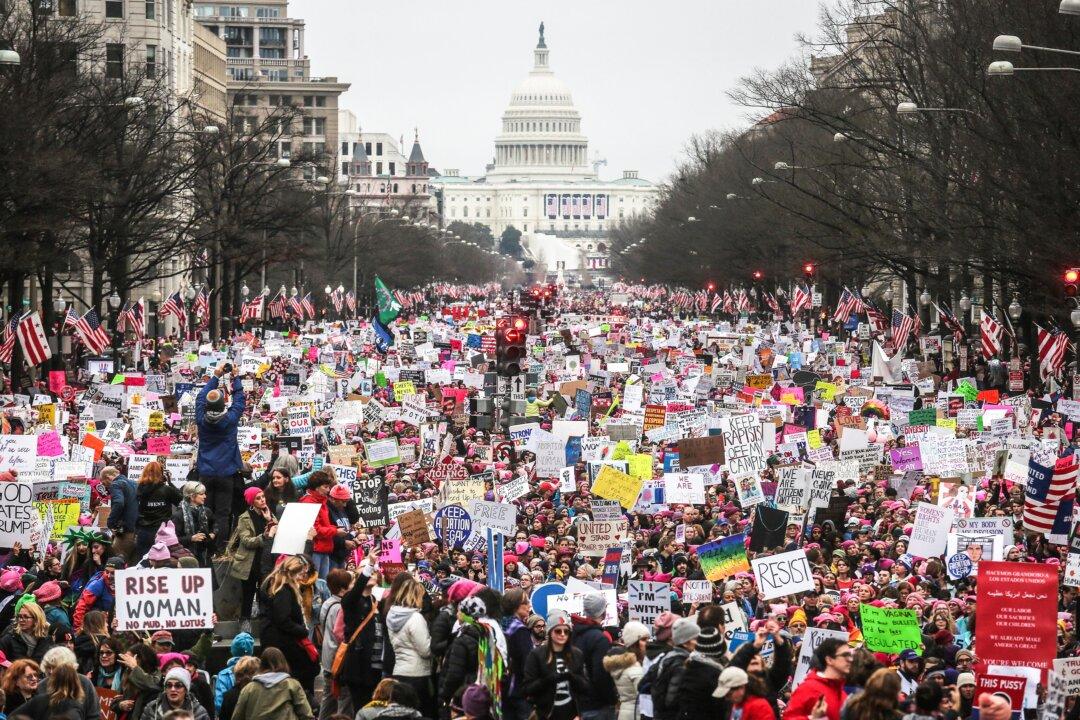WASHINGTON—Within 24 hours, Donald Trump received mass praise and mass condemnation.
On Inauguration Day, hundreds of thousands of people filled the National Mall to cheer for the new president. The next day, hundreds of thousands more came out to oppose him with the Women’s March on Washington.
For the members of the march, an ascendant Trump evoked indignation, distrust, and fear. The march was a single day of catharsis and protest, but it may endure by beginning a political movement.
Maura Adamczyk came to Washington with an entire busload that drove overnight from Chicago. She said Trump’s “example of how to treat women” could not be accepted. But she came not just on behalf of women. “He has insulted everyone on this planet,” she said.

Maura Adamczyk, from Chicago, (C) and her friends, take part in the Women's March on Washington. Benjamin Chasteen/Epoch Times





